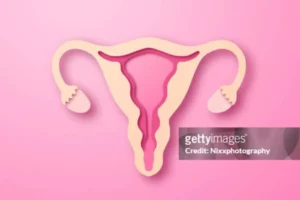Endometriosis, a chronic condition affecting the reproductive system, presents significant challenges for women, both in terms of physical discomfort and potential infertility.

Understanding this condition is crucial for accurate diagnosis and effective treatment.
Symptoms and diagnosis
Endometriosis manifests through various symptoms, with the severity ranging from mild discomfort to debilitating pain. Key indicators include painful periods, chronic pelvic pain, painful intercourse, ovarian cysts, and infertility. However, it's essential to note that these symptoms are not exclusive to endometriosis and may overlap with other conditions. Diagnosing endometriosis often requires surgical intervention. While symptoms such as dysmenorrhea may suggest endometriosis, they can also occur in a significant portion of the female population. Therefore, conservative therapy, including anti-inflammatory drugs and birth control, may be initially prescribed. However, if symptoms persist or worsen, surgical evaluation becomes necessary. Minimally invasive gynaecologic surgery (MIGS): These procedures, including laparoscopic and robotic surgeries, provide patients with faster recovery times, reduced pain, and lower infection risks.
For patients with refractory pain, infertility, or large endometriomas, surgical intervention offers a viable solution to alleviate symptoms and improve quality of life. Treatment options: Various treatment modalities exist to manage endometriosis symptoms effectively. Hormonal therapies such as birth control pills and gonadotropin-releasing hormone agonists or antagonists help regulate hormonal fluctuations, thereby reducing the growth of endometrial tissue. Additionally, non-pharmacological approaches such as anti-inflammatory medication, heat therapy, dietary modifications, and regular exercise offer complementary benefits in symptom management.
Conclusion: Endometriosis poses significant challenges for women's health, often requiring a multidisciplinary approach for diagnosis and treatment. As medical practitioners, recognising the hallmark symptoms and understanding the diagnostic process are crucial steps in providing comprehensive care to patients with endometriosis. By incorporating minimally invasive surgical techniques and evidence-based therapies, healthcare professionals can effectively alleviate symptoms and improve the quality of life for individuals living with endometriosis. Encouraging early intervention and proactive management strategies will empower patients to seek timely treatment and achieve optimal health outcomes.
Source: Johns Hopkins Medicine
Look out for the big 5
There are five common signs of endometriosis. Here’s what you should watch out for:
- Painful periods. Women with endometriosis often have debilitating pain that can prevent them from working or taking care of themselves or family members.
- Chronic pelvic pain. Sometimes, women have chronic and severe pelvic pain even when they don’t have their periods. This can be due to advanced or refractory disease and scarring.
- Painful intercourse. Dyspareunia can be due to endometriosis beneath the uterus. During penetration, women with endometriosis might have intense, localised pain.
- Ovarian cysts. While many ovarian cysts are normal and will resolve without treatment, endometriomas are another hallmark of endometriosis. They can become large and painful and may need to be surgically removed.
- Infertility. About 25% to 50% of women living with infertility have endometriosis, which can lead to infertility by causing scar tissue as well as damage and inflammation to the fallopian tubes. Research also shows that endometriosis can affect egg quality and reduce the number of eggs in the body.









